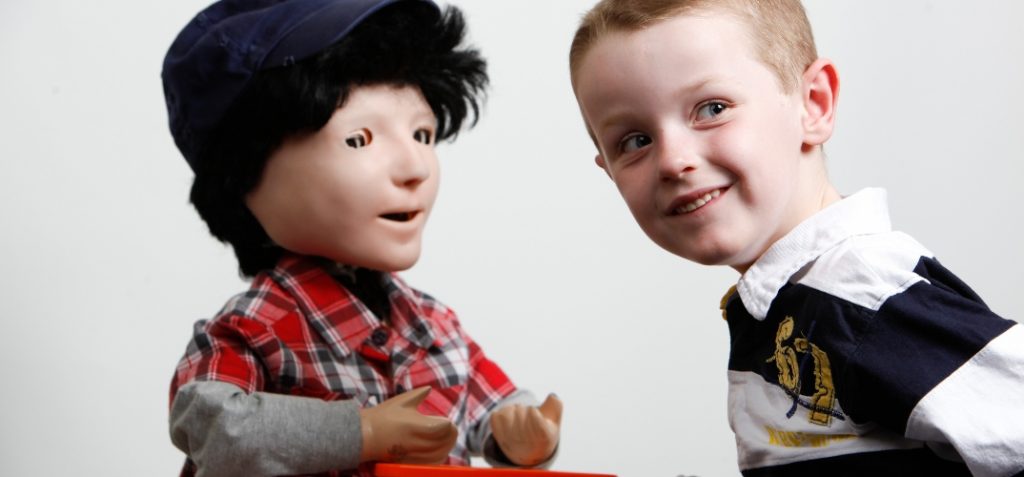The University of Hertfordshire has partnered with local school Garston Manor, a specialist school for autism, learning difficulties and speech and language, to further enhance Kaspar the social robot’s ability to act as an educational companion for children with autism or communication difficulties.
with local school Garston Manor, a specialist school for autism, learning difficulties and speech and language, to further enhance Kaspar the social robot’s ability to act as an educational companion for children with autism or communication difficulties.
The project is supported by academic partners in King’s College London, and a commercial company, Compusult in Canada.
The new ‘Kaspar Explains’ project will develop Kaspar robot’s ability to articulate its rationale for its responses in conversations and interactions with children with autism, to help grow their understanding of causal explanations.
Kaspar is a child-size humanoid robot who behaves in a child-like and expressive way, offering a more predictable and initially repetitive form of communication to help make social interaction simpler and more comfortable for children with autism and communication difficulties.
Kaspar is designed to be an educational companion to help improve the lives of children with autism and other communication difficulties and supports parents and teachers in helping children overcome the challenges they face in communicating and socialising with others. Kaspar has been used in schools, specialist early learning centres and in hospitals to help support children with autism.
Kaspar has been developed through more than 15 years of research by the University of Hertfordshire’s Adaptive Systems Research Group. The new project is funded by the UKRI’s Trustworthy Autonomous Systems Hub, a programme that supports UK researchers in delivering world-leading best practices for the design, regulation and operation of socially beneficial autonomous systems that are trusted in practice by individuals, society and government.
Professor Farshid Amirabdollahian, Professor of Human-Robot Interaction at the University of Hertfordshire, commented: “Previous studies have found Kaspar to be useful in a wide range of interventions for children with autism spectrum disorder. We’re excited about further developing Kaspar’s explanation provision capabilities to help interact and support children with autism with their social interaction and communication skills”
Christine deGraft-Hanson, Headteacher at Garston Manor commented: “Garston Manor School are delighted to be working in partnership with the University of Hertfordshire Adaptive Systems Research Group on the recently funded Kaspar Explains project. In this project we will be working closely with the University of Hertfordshire team to address the concept of causality in social interaction contexts with children with autism using the state-of-the-art humanoid robot Kaspar.
“The goal of this project is to establish the salient factors in providing explanations surrounding causality in social interactions to further develop educational tools and strategies for children with autism. The project is one year in duration and will begin in July 2021.”




